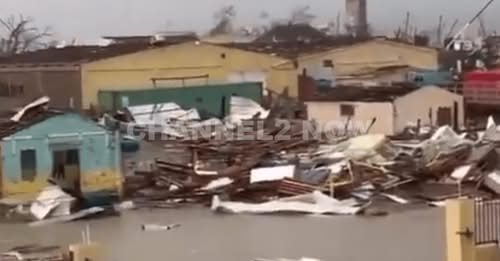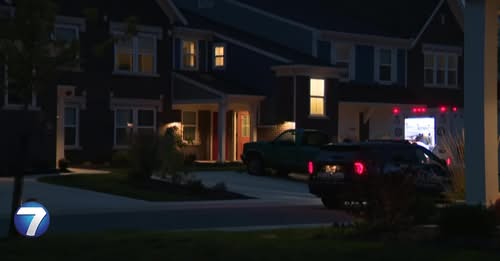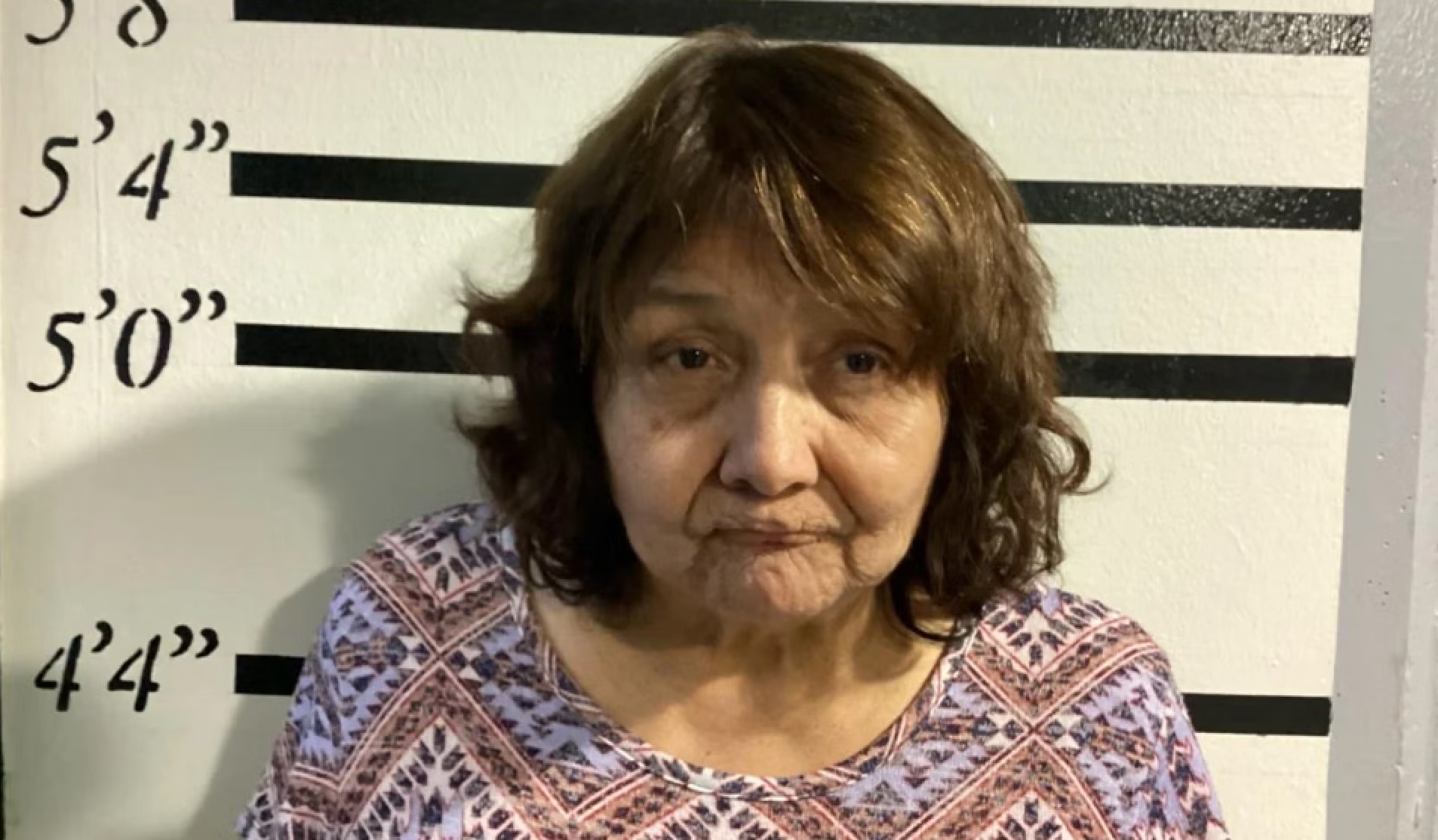The video from Black River is the kind of footage that lingers: a narrow street turned into a fast-moving brown river, corrugated iron slamming against lampposts, and people clinging to whatever high ground they can find as wind and water batter the town. What appears to be a calm moment between squalls shows whole sections of roofs ripped away, waves lapping at doorsteps and the unmistakable stunned silence that follows a storm that didn’t just visit — it rearranged life.
Officials say Melissa made landfall as a catastrophic Category 5 hurricane, one of the strongest to hit Jamaica in recorded history, and the footage from Black River is chilling proof of why forecasters used the word “catastrophic.” Emergency teams were hampered by impassable roads and live electrical hazards, and local leaders warned that rescue efforts would be slow and dangerous until conditions improved.

People in the clips speak softly, almost in disbelief — a woman wrapping a soaked child in a blanket, a man pointing to a neighbor’s home that’s been largely stripped of its roof. Commentators on the scene described multiple households cut off by floodwaters; authorities later confirmed crews couldn’t reach some trapped families because the water and debris made it too risky. That sense of urgency and helplessness is what makes the footage so immediate: it’s not just damage, it’s people mid-crisis.
Hospitals and critical infrastructure took hits as well. Health officials moved patients off ground floors and shifted resources as power outages and water damage spread; several hospitals reported structural and power problems, forcing staff to improvise to keep critical care running. These aren’t abstract statistics — they’re the medical backbone of communities now forced to operate under emergency conditions.
Meteorologists say Melissa’s central pressure plunged into the extreme range and sustained winds rivaled historic Atlantic storms, which explains the scale of the destruction captured on camera. Forecasters had warned of storm surge up to about 13 feet along parts of the southern coast, and the Black River footage shows how surge plus heavy rain can turn neighborhoods into islands in a matter of hours. The storm’s strength also means debris and structural failures were widespread, so even after waters recede there’ll be a long, dangerous cleanup.
Yet within the same clips you also see the old, quiet resilience that marks Jamaican communities: neighbors helping neighbors, someone passing bottled water through a broken fence, volunteers hauling what they can save onto higher ground. Those small acts interrupt the damage with human tenderness — a reminder that recovery will be about both rebuilding roofs and reassembling lives.
Relief agencies and foreign partners are already being mobilized, but local officials stress that the first days after a Category 5 strike are about search and safety before recovery can even begin. If the Black River footage tells us anything beyond the scale of the damage, it’s that timelines will be messy: immediate needs for medical attention, shelter, and clean water will compete with the reality that roads, bridges and power lines might keep crews from moving quickly.
If you watch the Black River video and feel heartbroken, that reaction is exactly what’s needed now — attention and action. The images demand both: short-term help for those trapped or evacuated, and longer-term commitments to rebuild more resiliently. For the people whose lives flashed past a camera lens during one of the fiercest storms the island has seen, the road ahead will be long, but the footage also captures the first, stubborn sparks of community care that will carry them through.



